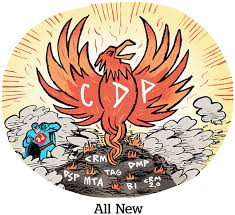Labour confirms assisted suicide pledge, as activists protest outside parliament

Labour has re-affirmed its commitment to making time for MPs to “have a final say” on whether assisted suicide should be legalised, just as disabled activists were protesting about the idea outside parliament.
MPs were discussing a parliamentary petition set up by the right-wing Daily Express newspaper, which has been signed by more than 200,000 people and calls for assisted suicide for terminally-ill people to be legalised.
As they were debating the petition in Westminster Hall, disabled activists just 100 yards or so across the road outside parliament were highlighting the dangers of legalisation (pictured).
They were speaking of their horror at the government releasing new plans to cut personal independence payment on the same day MPs were debating the idea of legalising assisted suicide (see separate story).
Inside Westminster Hall, significant concerns were raised about the prospect of legalisation, although opponents were outnumbered by MPs who backed the petition.
One of the most prominent opponents was Labour’s Sir Stephen Timms, who warned that “changing the nature of the National Health Service, so that it ends people’s lives as well as sustains them, would be an absolutely fundamental change that we need to weigh very carefully indeed before introducing”.
He said: “I understand the proposition that people with a diagnosis of terminal illness should be allowed help to die, but it is clear from what happens elsewhere that if that did happen, it would not remain subject to that narrow criterion.
“It would not end there. Indeed, the campaign to broaden the scope has already begun.
“Matthew Parris wrote in his column in The Times that we need assisted suicide because old people cost too much.
“It seems to me that legalising assisted dying would impose a terrible dilemma on frail people, elderly people and others when they are at the most vulnerable point in their lives, especially on conscientious frail people who do not want to die but do not want to be a burden.
“I do not think that there is any way to avoid imposing that dilemma. The National Health Service should be there to protect those people.”
Other MPs warned of the “slippery slope” that would inevitably mean that the scope of any legislation would be widened once a law was brought in.
Conservative MP Nick Fletcher described how a 23-year-old woman with post-traumatic stress disorder was euthanised in Belgium two years ago, and how a 28-year-old woman, Zoraya ter Beek, is due to die this month in the Netherlands after seeking euthanasia due to depression.
The Conservative MP Sir Desmond Swayne pointed to the latest statistics released by the US state of Oregon, which legalised assisted suicide in 1997.
He said: “By far, the largest cohort of applicants for the service – 52 per cent – are those who say they wanted it because they did not want to be a burden, far exceeding those who wanted it to avoid pain in death.
“There is a profound danger that what begins as a choice will end as an expectation.”
Labour’s Rachael Maskell told fellow MPs: “I am worried about the person who says, ‘I’m just getting in the way. My children will have a better future without me. Perhaps the savings I have put aside could be better spent by them than on me.’
“It is not necessarily coercion, but the way that people feel in a society that changes the law.”
She also told MPs: “The NHS is in tatters, social care is in a dire condition and so much funding has been withdrawn from civil society.
“There is much for the government to do, and they must address those reasons in order to ensure that everyone has the opportunity for a good end-of-life experience.”
Some supporters of legalisation appeared to concede that some people would be placed at risk under a new law.
Labour’s Sir George Howarth suggested that the idea of coercion was “based on an unduly pessimistic view of human nature, that people will pressure their close relative or loved one to take such a decision purely on the grounds that it might serve them well financially… or because they want to avoid caring responsibilities in the later stages of their loved one’s life.”
But he added: “I do not believe that that is how the majority of people take those decisions.”
He agreed that “some people might act in that way”, although the “overwhelming majority” would act “out of love”.
And Labour’s Tonia Antoniazzi, who moved the motion on the petition on Monday, told fellow MPs in Westminster Hall that it was “perhaps naive to suggest that any change in the law would not have wider consequences in society, beyond the individual making the choice”.
She pointed to the Danish Council on Ethics, which she said concluded last year that “the existence of an offer of assisted dying would decisively change ideas about old age, quality of life and dying, and that there was too great a risk that it would become an expectation aimed at certain groups in society”.
Ruth Cadbury, a shadow justice minister and a supporter of legalisation, confirmed that a future Labour government “would make time for a private member’s bill so that parliament can have the final say through a free vote, following a full debate and a process of amendments”.
Junior justice minister Laura Farris said the government’s position remained that “any relaxation of the law is an issue of conscience for individual parliamentarians, rather than one for government policy.
“In the tradition of all conscience matters where the government maintain a neutral stance, that is typically achieved through a private member’s bill.”
Better Off Dead?, a documentary by disabled actor and activist Liz Carr that highlights the dangers of legalisation, will be broadcast on BBC One and iPlayer on Tuesday 14 May at 9pm
A note from the editor:
Please consider making a voluntary financial contribution to support the work of DNS and allow it to continue producing independent, carefully-researched news stories that focus on the lives and rights of disabled people and their user-led organisations.
Please do not contribute if you cannot afford to do so, and please note that DNS is not a charity. It is run and owned by disabled journalist John Pring and has been from its launch in April 2009.
Thank you for anything you can do to support the work of DNS…


 United Kingdom
United Kingdom Argentina
Argentina  Australia
Australia  Austria
Austria  Brazil
Brazil  Canada
Canada  Germany
Germany  Ireland
Ireland  Italy
Italy  Malaysia
Malaysia  Mexico
Mexico  New Zealand
New Zealand  Poland
Poland  South Africa
South Africa  United States
United States 







































